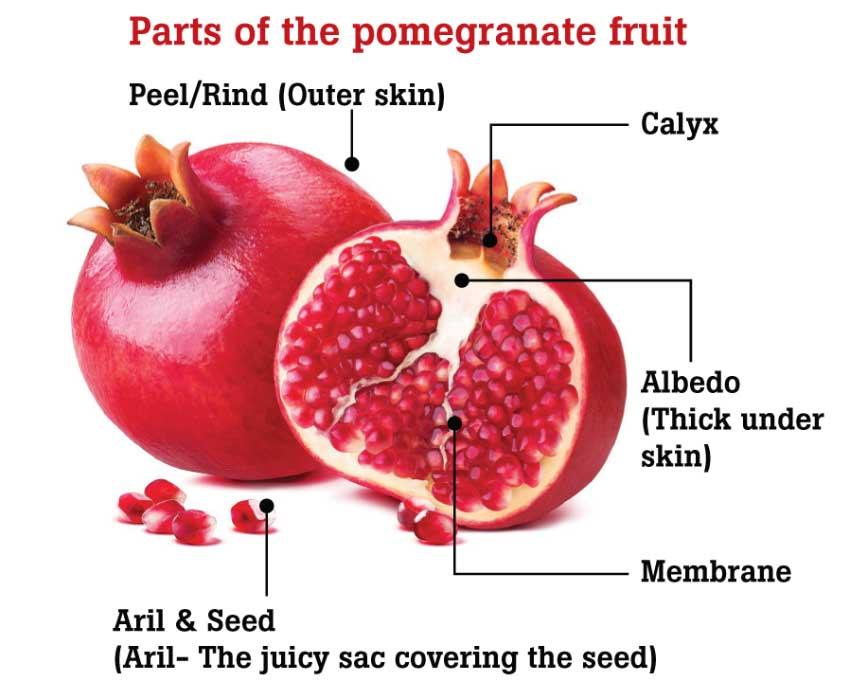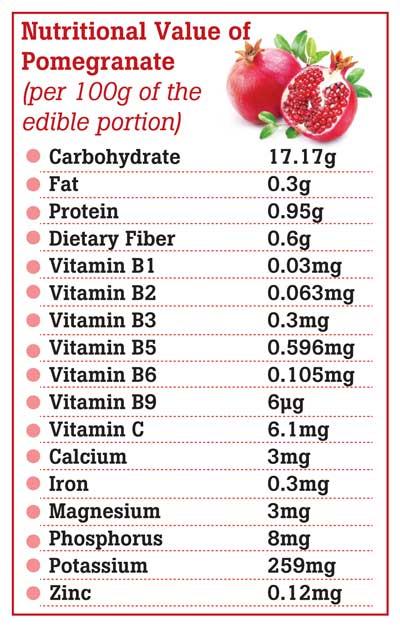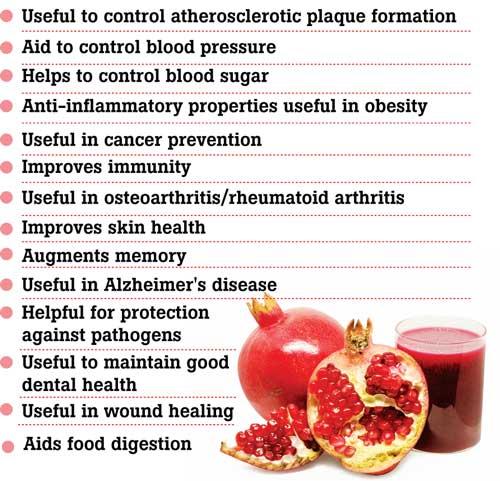Reply To:
Name - Reply Comment
 Pomegranate is a fruit with full of nutritional factors in each part of it; and this gives a high medicinal value to it. It can be cultivated in both cold and hot climates, provided that a good water supply is present in hot climates. Pomegranate cultivation can be seen mainly in dry zones in Sri Lanka. It will take 6-8years to get the maximum harvest from a pomegranate tree. Depending on the conditions, about 300 pomegranates can be plucked from one tree per year. Pomegranate can be stored below 50C for about 7months.
Pomegranate is a fruit with full of nutritional factors in each part of it; and this gives a high medicinal value to it. It can be cultivated in both cold and hot climates, provided that a good water supply is present in hot climates. Pomegranate cultivation can be seen mainly in dry zones in Sri Lanka. It will take 6-8years to get the maximum harvest from a pomegranate tree. Depending on the conditions, about 300 pomegranates can be plucked from one tree per year. Pomegranate can be stored below 50C for about 7months.
Nayana, Daya and Nimali are the Sri Lankan varieties of pomegranate which was recommended by the Agricultural department of Sri Lanka in 2001. A new hybrid variety was introduced later by the Kalpitiya research center.

Weight percentage wise, the juice of the fruit contains the highest which is 46% and peel and seeds contain 43% and 11% respectively.
Nutritional Value of Pomegranate (per 100g of the edible portion)

Health benefits of Pomegranate
Recent studies have demonstrated potent anti- oxidant, anti-inflammatory and anti-microbial effects of pomegranate. These properties have lead in to many health benefits.
Due to the anti oxidant properties, Pomegranate has the ability to scavenge free radicals which damages the body cells and also has the ability to prevent lipid peroxidation which lead to cholesterol plaque generation.
Anti inflammatory properties of Pomegranate has given a good medicinal value to pomegranate. The compounds containing in Pomegranate helps to control the inflammatory processes which is seen in many disease generation processes.
Pomegranate also has anti microbial actions which act against bacteria, fungi and viruses. It prevents bacterial growth and also prevents DNA and RNA replication of viruses. Thus pomegranate has a place in treating infections.
Why you should eat Pomegranate?

Do NOT throw away the pomegranate peel!
People eat the pomegranate arils, some eat the pomegranate seeds and almost all the people throw away the pomegranate peel. Though Pomegranate peel has a bitter taste, it is rich in compounds with anti oxidant, anti inflammatory and anti microbial properties. Thus it is very wise to consume pomegranate peel without throwing away. Pomegranate peels can be broken in to small pieces then dried and use to make tea or it can be dried and then powdered and taken in to use. The powdered peel can be mixed with bee honey and consumed.
Pomegranate also has anti microbial actions which act against bacteria, fungi and viruses. It prevents bacterial growth and also prevents DNA and RNA replication of viruses. Thus pomegranate has a place in treating infections